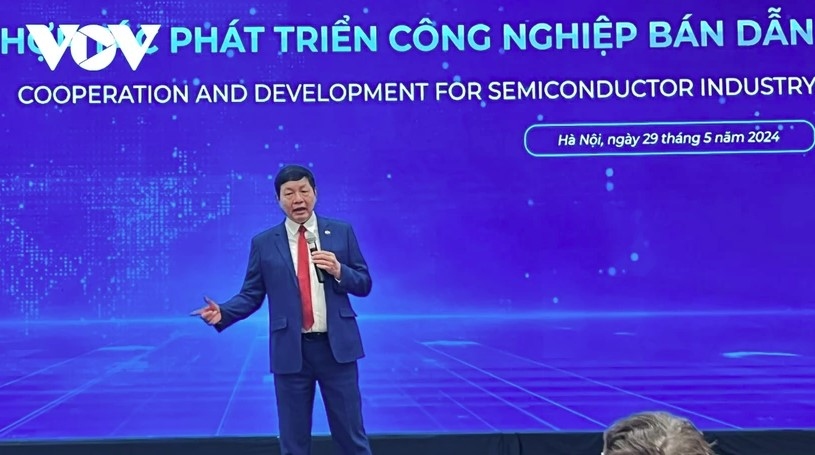Vietnam aims for growth in booming semiconductor industry
A seminar on cooperation in semiconductor industry development was held by the Vietnam Software & IT Services Association (VINASA) in Hanoi on May 29, as part of the Vietnam - Asia Digital Transformation (DX) Summit 2024.

In his speech at the event, VINASA Founding Council Chairman Truong Gia Binh gave insights into the global semiconductor market and laid stress on major opportunities for Vietnamese companies.
He revealed the establishment of the Vietnam Semiconductor Industry Development Committee by VINASA. This committee’s mission is to unite experts, businesses and partners to accelerate the industry's growth through training, knowledge sharing, collaboration with authorities at all levels and incentives for both domestic and foreign investors.
With a compound annual growth rate of 14% over the past two decades, semiconductor is on track to become a trillion-dollar industry by 2030, said Deputy Director of the Ministry of Planning and Investment (MPI)’s National Innovation Centre Nguyen Thi Le Quyen.
Underlining the anticipated surge in workforce demand, she said by 2030, China is projected to need 400,000 personnel, the US 67,000, and an intense competition for talent is expected in the Republic of Korea (RoK), Japan and India. This underscores a critical need for Vietnam to prioritise workforce training and development in this field.
An MPI-led scheme on workforce development for the semiconductor industry by 2030 with orientations to 2050 anticipates a need for roughly 50,000 engineers, including 15,000 major in chip design and 35,000 in manufacturing, packaging, testing and related areas. To achieve this, Vietnam needs to train 1,300 lecturers for research institutions, universities, training facilities and businesses. Additionally, the training network needs to expand to encompass 200 establishments.
Nguyen Thien Nghia, Deputy Director of the Authority of Information Technology and Communications Industry under the Ministry of Information and Communications, stressed the importance of cultivating a supportive ecosystem for chip manufacturers, saying that such will enhance Vietnam's appeal to major manufacturing corporations, potentially attracting more semiconductor chip production activities to the country.
